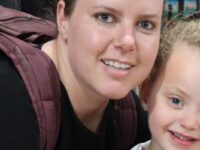Success of sports apps was not really “overnight”, but underscores a long, hard road of tribulation stretching from Saddam Hussein to Shane Warne.
An AFL players app, promoted via a video narrated by Eddie McGuire, featured on Apple’s “New Apps We Love” list in September, quickly becoming the most paid-for-app on Appstore Australia. Within weeks, the “Warniemoji” app was launched with great fanfare across national newspapers and television networks, making Shane Warne the first Australian celebrity to have his own emoji.
To many, these achievements appeared to be “overnight success” for the Melbourne digital agency that created both apps, but for its founder it was affirmation. Zanyar Mohammad was born in Iraq in 1986, in the Kurdish city of Halabja, which gained worldwide prominence when its citizens were subjected to a chemical weapons attack by Saddam Hussein on March 16,1998. For days beforehand, rumours had circulated about the likelihood of the attack, and Zanyar and his family fled the city – on the eve of the attack, in which most citizens who stayed lost their lives.
Zanyar was only two years old when a group of families left the city on foot in the dead of night and headed for the mountains. He was particularly vulnerable to gas, and even though the group had managed to put some distance behind them by the time of the attack, particles borne by the wind burned the skin off his back.
Lying low in mountain caves by day and travelling at night, the group eventually reached the Iranian border. After 18 months in an overcrowded refugee camp, Zanyar’s family was relocated by the UNHCR to Pakistan, starting out in another refugee camp then being moved from city to city.
No support
Going to school in Pakistan, he had to try to master Urdu to keep up with his schoolmates. None of his family spoke the language and there was no support network in Pakistan to offer tuition. But Zanyar persevered, and at 11 years old won a Principal’s prize for his schoolwork in his final year at school in Pakistan. Despite all his subsequent achievements, this remains one of the proudest days of his life, and the prize still sits on display in his parents’ house in Epping, Melbourne.
UNHCR had always planned that Pakistan would just be a stepping stone for Kurdish refugees, but many – including Zanyar’s family – were blockaded by administrative and political issues, and ended up spending a decade in the country. Eventually Zanyar’s family was offered residency in Australia, and arrived in Melbourne on August 27,1999. Their apartment in Maribyrnong was a revelation – never before had he seen a modern kitchen with time – and labour-saving gadgets, and a fully stocked fridge and pantry. It was also the first night he had slept in a room of his own.
The next morning Zanyar’s dad gave him $2 and told him to go to the shop. The lad was dumbfounded by the concept of the pedestrian crossing – pressing a button and having a line of traffic coming to a halt so you could cross the road was a far cry from the chaotic, life-on-the-line experience of dodging the traffic in Halabja, Quetta and Islamabad. Zanyar spoke few words of English when he arrived in Melbourne, but an intensive course at a language school was enough for him to enrol at Reservoir District Secondary College.
“His high school had a computer lab, and the first lessons in the basics of computing brought him some of his happiest school-day memories.”
Seed of fascination
While in Pakistan, one of Zanyar’s schoolmates had announced that his family had acquired a computer, and promised the chance to play on it. Day after day different excuses were given as to why this was not convenient, and it never eventuated. The incident planted a seed of fascination that continued to grow, and soon after arriving in Melbourne a neighbour offered Zanyar’s dad an old computer. Zanyar switched it on in a fever of anticipation, but had no idea how to make it work. Hours of pressing different keys brought no joy, which only heightened his obsession.
His high school had a computer lab, and the first lessons in the basics of computing brought him some of his happiest school-day memories. While his schoolmates played during breaks, Zanyar was on the computer in the library. He worked in Hungry Jacks and McDonald’s after school to save enough money to buy his own computer, which he did when he was 15. A combination of classes at school and hours at home researching and experimenting saw Zanyar develop programming skills, and convinced him his career was going to be in computing.
He completed a computer network engineering degree in 2006 and graduated with a bachelor of computing in 2010. But as he struggled to find a job with his new degree, Zanyar felt that while he was highly qualified he did not have any corporate experience. He ended up having to take manual jobs to make ends meet, humping stock around an industrial warehouse from dawn until dusk. Being unable to use his skills was depressing Zanyar, but a friend offered a lifeline, giving him a short-term contract on a computing upgrade project at Melbourne’s Methodist Ladies College, which in 1990 had become the first school in the world to provide every student a laptop.
Full-time role
After the project, Zanyar managed to gain one of 25 spots as an “IT ninja”, helping a multinational with its computing during a major office relocation. Although this was only a few weeks’ work, the company offered a full-time IT support role for one of the “ninjas”. Zanyar succeeded in securing it. In the following few years he worked for various corporates in IT roles, and by late 2013 was working in IT support for an international funds transfer company while doing IT support, website development and digital-marketing projects on the side for friends.
The dream to run his own company had always been there, and, with the build-up of sideline projects, it became time to “go it alone”. Zanyar’s curiosity for technology from a young age had always informed his career path, and in starting his own business he wanted to honour the early pioneers of computing technology. Konrad Zuse invented the first programmable computer, in Germany in 1941, so Zanyar considers him the founding father of today’s computers. Hence, he named his business Zuse Digital.
Zanyar was living with his parents in an outer suburb of Melbourne. Besides the inconvenience of having to spend upward of three hours a day commuting, living in this area did not afford access to a likely market for his new digital marketing venture. Based on the adage “do business where there is the most traffic”, Zanyar rented an apartment in Melbourne’s CBD. While this was more of a strain on his now-constricted resources, he believed he needed to be close to the types of businesses that had the foresight and budgets to be interested in the emerging digital technologies of sophisticated websites and mobile apps.
Using contacts from his corporate days and word-of-mouth referrals, Zanyar started winning website-development and digital-marketing projects, and now has a full book of projects such as the AFL players app and “Warniemoji”.
Tim Ladhams
















